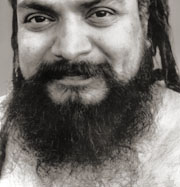Narrow and Universal Feelings
Yoga Vasishta preserves the teachings of yogis that date back many thousands of years. The impact of those teachings are as powerful today as they were when first spoken.
As written down in medieval times, which is the version we have today, Yoga Vasishta has some elements that have nothing to do with any yogi’s teaching. These foreign elements are a small portion of the book, but they need to be recognized for what they are — additions to please brahmins, the princely class, and their prejudices.
Medieval princes retained brahmins to write down (or copy earlier versions) what is now known as Yoga Vasishta Maharamayana. In the process, they added gloss which we today would call culturally insensitive. Condescending references towards women and “lower” social classes belong to the pundit brahmin scribes who wrote down or copied the stories. Being in the employ of princes, they had good reason to praise the ruling caste. Being brahmins, they had even more reason to unabashedly praise the brahmin caste.
Even so, the stories themselves reflect a much more universal attitude — a universal fellow-feeling that is the hallmark of a yogi. It is not difficult to read the substance of Yoga Vasistha and remain mindful of the obvious prejudices.
Take the example of women in Yoga Vasishta. Those who assembled or copied the existing Sanskrit text were misogynistic to the extent they blamed women for being of less value and the seducers of men. But in two of the most significant stories, that of Queen Leela and Queen Chudala, it is the woman who first attains Self-realization and ends up having to wake up their rather gender-conceited husbands.
Then there are foreigners. India is held up as the land of wisdom and sages. Certainly, we can believe that India may be the land where many sages have lived and the culture of the ancient sages has best been preserved. But consistent references to foreigners as being savages, less enlightened, or even less than civilized are a bit too much. “Among all living beings confined in this earth, only the human race living in this part (India) are capable of receiving instruction and civilization.” (IV.40.12) This is suitable praise to cultivate the patronage of a medieval Indian ruler, to whom the written Yoga Vasishta was addressed, but yogis do not distinguish on the basis of nationality.
The most obvious gloss is the sycophantic reverence towards the brahmin class. Brahmins are held up as the most pure of men and even gods. At the end of the work, Vasishta instructs King Dasharata to reward every brahmin. (VIB.214.30-32) He feeds the brahmins first, ten thousand of them gathered from all over the realm, and only then his family gods, his family and friends, then servants and citizens. Only at the end does he bother with the poor, needy, lame, blind and lunatics.
If this ending isn’t enough, Valmiki, the author to whom Yoga Vasishta is attributed, is made to state that upon each recital of the work, the brahmins are to be rewarded. “At the close of reciting these lectures on the way to attain human salvation, it is suitable for every sensible man to honor brahmins with diligence and serve them with desirable gifts of food and drink and furnish them with good houses for their lodging. They should also be rewarded with gifts and payments and supplied with money to their hearts’ desire and to the utmost capacity of the donor. Then the giver or master of the ceremony should rest assured of having discharge his duty and reaped the merit according to the intent of the scriptures.” (IVB.215.15-16) It's job security.
The consistent and self-serving pandering to the brahmin caste of priests, together with disdain for tribals (not even eligible to be counted as within any caste), shudras (the "lowest" caste, that of people who actually work for a living) and chandalas (mixed children of a shudra and one of the three higher castes) also reflect an attitude that we should consider prejudiced. Even so, the brahmin pundits did not alter the many stories of demons who attained Self-realization, and the one person who survives all the ages is a crow, Bhushunda.
(Shivabalayogi privately complained about brahmins and their arrogance. Swamiji was born into a lower caste, the shudra caste of weavers. That a shudra should become a yogi rankled brahmin arrogance. Swamiji was cutting into their business. They denounced Shivabalayogi as a fraud. Some even hired goondas (thugs) to use violence to chase him and his followers away. Brahmins gave Swamiji so much trouble, he would say.)
Periodically, there is a sentence in Yoga Vasishta about universal love. This is the attitude that reflects the yogi. “The mind, cleansed of its selfishness, turns to universal benevolence and philanthropy.” (IV.35.67)
“Fellow feeling for all living beings makes the best state of the mind.” (IV.56.42)
“Know Rama that all created beings are friendly and useful to you, and there is no person or thing in the world with which you are not related in some way. It is false to look anyone as a friend or foe among the various orders of created beings in the universe. In reality, each may be of help to you, however unfriendly they may appear at first.” (V.18.63-64)
The truth in Yoga Vasishta is universal fellow-feeling, an attitude and recognition that gender, culture, caste and even demons are seen only as appearances of the Divine. This is the true yogi’s teaching.
![]()

